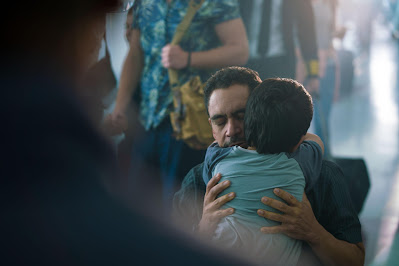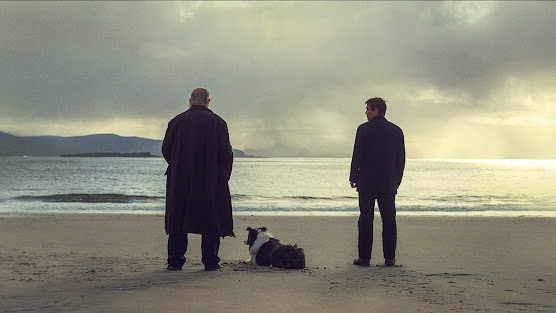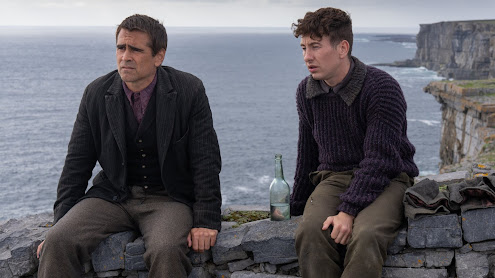Horror as a genre originated from real fear—taking things we are afraid of in our real lives and turning them into something fantastic and unreal. I think all my favorite horror movies have that element to them. Some are like Crimson Peak; "The ghosts are a metaphor for the past," the characters say. And in the movie that's really all they are. Some are like 28 Days Later; people grappling with loneliness and isolation in a world where everyone you meet is either a zombie, or could turn into one at any moment.
Metaphorical monster movies in particular stand out to me. Even if (or perhaps especially if) the metaphor is obvious or spelled out as in Jurassic Park or The Babadook, there's something about the combination of the unignorable presence of a literal monster wreaking havoc and more subtle things they represent (such as pushing the limits of science, or simple depression) that brings the fear to life. And Godzilla—the original Godzilla—is a classic example of that. A radioactive monster terrorizes Japan.
 |
| I've always understood the metaphor in my head. This movie made me understand it in my heart. |
As the Godzilla character became Americanized, the metaphor shifted. It became a tool used to preach. A warning against war or the wielding of nuclear weapons perhaps, but not about the fear, and the powerlessness of being at the mercy of those things. Godzilla himself even turned into a benevolent being that represents peace, somehow. And lately, it's been nothing but a way to use CGI artists to numb audience minds for money. Godzilla go rawr, people buy ticket.
And that, most of all, is why I love Godzilla: Minus One. It's a return to metaphorical form. And it's done gloriously. It made me feel and understand on a palpable, gut-wrenching level, the fear that Godzilla represents. And it's not even marketed as a horror movie! It's not very scary, nor dark in tone (or in lighting). It's just an action/adventure monster movie, with drama. And characters. And writing. And I mean real, honest-to-goodness, there's-cohesion-and-a-story-here kind of writing, where everything fits together and serves to enhance and balance the next element, all surrounded by artistry and understanding of the purpose and value of stories as a whole... and I... I've missed this so SO much over the past few years.
 |
| A cohesive story is great—but can still be clinical. This one possesses that spark of passion that brings a well-conceived story to life. Really, it's more than a spark. |
Minus One follows Koichi, a failed kamikaze pilot who goes home after the war in shame to a bombed out house and no family left alive. Survivor's guilt plagues him, as do memories of a dinosaur-like creature who appeared out of the sea and killed everyone on an island outpost where he was hiding. He cannot allow himself to truly live, but neither can he turn away from life completely. He stumbles into caring for a girl named Noriko, and the orphaned baby she's become a surrogate mother for. Together they build a life and scrape by until they've found their feet. He gets a job removing sea mines from the bay. The city and the people begin to heal. But then the monster returns. And with it, the dread and the shame.
Even though the topic is depressing and the people in the story are beat down, the movie's tonal feel is incredibly broad. One of my favorite things about Japanese entertainment. The sweet/pleasantly goofy humor sparked laughs, then it seamlessly falls into the quiet character moments, or to energetic scenes, anger and joy in turn. There is a prevailing sense of hope and perseverance present, and when the monster thrills come, they do not disappoint. The awesome, boyish, "that so cool!" element is as necessary as the underlying seriousness. And neither undercuts the other. Some of the monster moments were outright stunning. I never thought I could take Godzilla seriously enough to get a jolt of fear seeing him chase down a ship. Or the dread—a true sinking sensation—as his atomic breath builds through his spine.
 |
| Those monsterverse movies, with their oodles and oodles of cash, never came close to hitting like this. |
There were one or two times when I reflexively gasped, and I spent several minutes in debate with myself over who would survive and trying to figure out if a happy ending was earned, or would it be tragic, or bittersweet. I fell in love with Koichi almost instantly, understanding and sympathizing with him, hoping he'll find a way to beat both the monster and the metaphor. And all the side characters as well. They were all their own people, their personalities and arcs mattering every bit as much as their functional purpose within the plot. It feels so strange that an action flick about an atomic sea-dino could throw me so effectively and cleanly through a gauntlet of emotional ups and downs, but that is, after all, what stories are meant for—even if we've forgotten.
Monster movies at their best aren't monster movies. If the creature is a metaphor, or some fantastic extreme fictionalization of a real fear, then if it's done right, the monster can reveal a human heart even more clearly than a regular-sized movie that's only about the people. Done right, monster movies are more human than human movies. And Minus One knows that. It earns everything it reaches for (and it reaches far!) because it reaches for understanding and connection, using monster mayhem and spectacle as a means to achieve that end. There's plenty to be said for the spectacle this movie delivers, but the true beauty here—like a metaphor—isn't in what we can literally see, but in what that sight prompts us to feel and understand.












